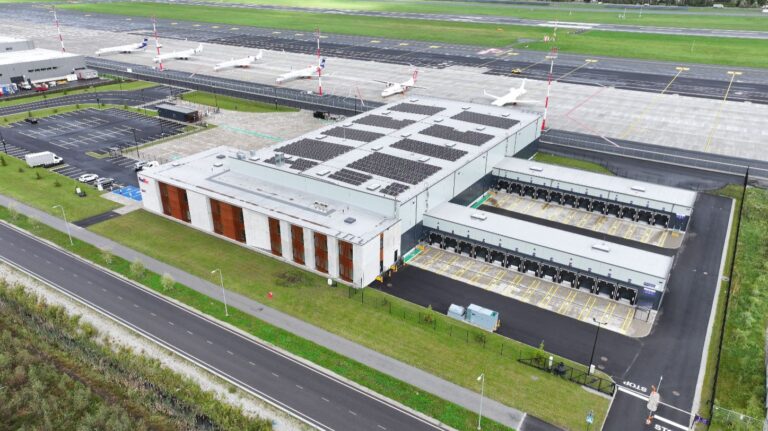US multinational courier delivery services company FedEx has opened a new air and ground logistics facility in the cargo area of Tallinn Airport, establishing a direct connection between Estonia and the company’s European air hub at Paris Roissy-Charles de Gaulle.
The modern, automated site combines air and road operations and is designed to help Estonian exporters access international markets, with a FedEx aircraft operating on business days and a threefold increase in warehouse space compared with the previous location.
The facility features sorting systems capable of processing, weighing and measuring up to 3,000 parcels per hour. Advanced tools include multi-sided scanning to capture parcel dimensions and barcode data from multiple angles, supporting precise, automated sortation.
The building also includes 1,200m² of office space and incorporates sustainability measures such as rooftop photovoltaics, motion-sensing lighting, EV chargers and heating and cooling via heat pumps using geothermal energy.
“Our latest investment strengthens Estonia’s position in global trade,” said Mariusz Mik, vice president of ground operations, Nordics and Eastern Europe, FedEx Europe.
“By focusing on speed and efficiency, FedEx is not only supporting the country’s economy, like the growing e-commerce sector, but also empowering local entrepreneurs to reach customers in over 220 markets worldwide.”
The development has been welcomed by the Estonian E-Commerce Association. “E-commerce in Estonia grows by around 20% every year, already reaching an annual turnover of €5.2bn,” said Tõnu Väät, chief executive of the organisation.
“Any investment in Estonia by an international logistics partner – whether in sorting capacity, warehouse space, or transportation modes – definitely lays a foundation for export growth.
“We hope this will help offer Estonian e-merchants more competitive prices that support growth.”
FedEx has operated in Estonia since 1994 and said the Tallinn site forms part of a wider investment plan in Central and Eastern Europe, where it has built or expanded 17 facilities in six countries in recent years.







